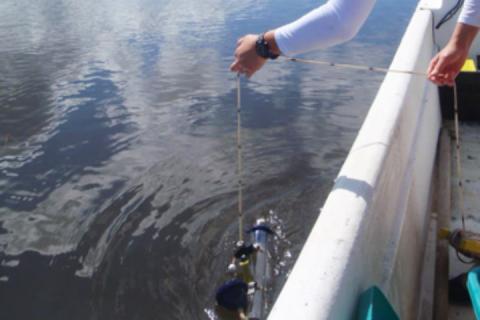
People have harvested oysters in Mississippi’s Grand Bay for more than 4,000 years. Today, that legacy is at a crossroads. Increased pollution from residential and industrial development and overtaxed wastewater treatment systems is flowing into the Bay with potentially far-reaching effects on ecosystems, human health, and local economies. To protect human health and identify areas at risk for habitat degradation and fisheries loss, local decision-makers need more information about the extent of these impacts on local ecosystems.
In response to this need, the Grand Bay Reserve worked with Dauphin Island Sea Lab to use Grand Bay as a benchmark estuary to define the legacy effects of land use change on water quality, historic and modern oyster populations, shifts in nitrogen sources, and pathogen accumulation.